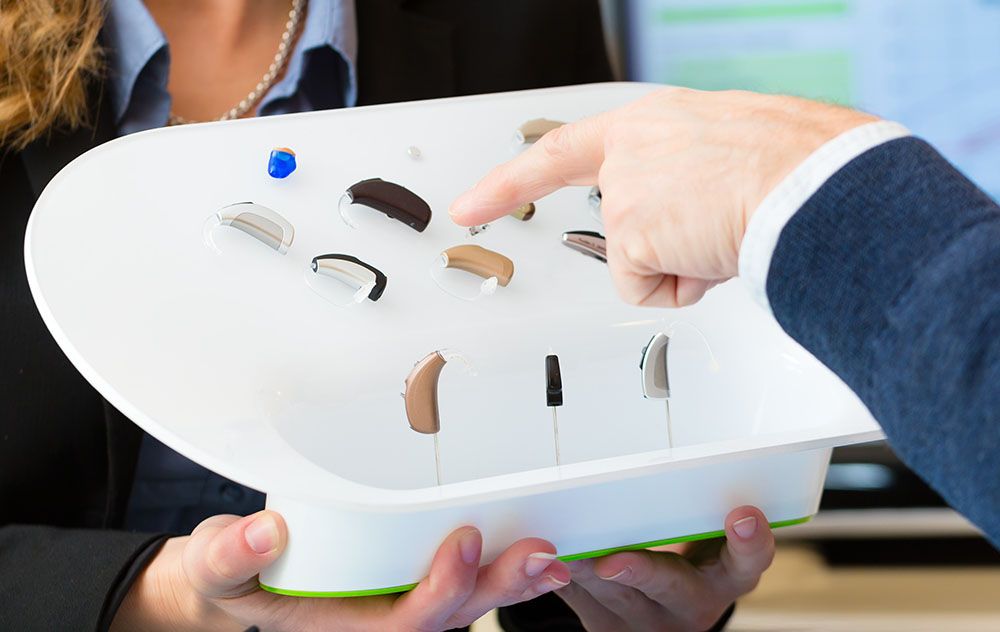=Hearing Aids will be a considerable investment to improve your quality of life. It is obviously practical that you would want to have perfect hearing. However, before you buy a set of hearing aids, it would be best for you to make a fully-informed decision. One common error that happens is that users may not even need hearing aids. You do not want to lose out on a considerable amount of money which you could use for something else. Here are some tips on buying a hearing aid.
1. Get Checked Up
This step goes without saying. Before you make any rash decisions like buying a set of hearing aids, it would be best for you to get a checkup first. Go through a doctor’s checkup and make sure that you need a pair or not. You can even do this online and take a hearing test. This will save you time and money. Rest assured that it will produce reliable results.
2. Find A Specialist
If you want a second opinion, you can always find a certified hearing specialist. There are lots of professionals that specialize in hearing health. They will be able to further diagnose your hearing issue and even remedy the problem without you having to get a set of hearing aid.
You would want to search for one that has a great track record or reputation for you to get help from. At this stage, you should be wary of prices that seem too good to be true.
3. Undergo A Thorough Examination
A thorough hearing test is the next step forward from the examination the hearing professional that you have chosen to work with can ascertain what the actual issue is and will come up a solution that’s specifically designed for you. Another purpose of the evaluation is to determine which piece of hearing technology you will need such as in-canal tech style or for invisible. The type of technology you will get will be based on the results from your examinations this is done through a series of evaluations such as a hearing test and a visual determining the shape of your ear canal.
4. Put your investment into careful consideration
Prior to investing in a piece of hearing technology you need to understand that your hearing aids not only have a value but a price too. Aiming to get something that you can afford will be the ideal way to go about things.
When selecting a hearing aid you have a range to choose from such as the basic to the most advanced. When choosing a pair, you have to understand what you’re getting for the value of your money. There will be a price range guide online for you to make an educated decision with. Next, there will be a contract ironing out the details of the hearing aid and what professional service you have access.
5. Make sure it fits
During the process of obtaining a custom fitted hearing aid they will make a mould and design it to the shape of your ear canal based on the impression they obtained. The replication needs to be quite accurate because you will be wearing this hearing piece throughout your day to day business. Make sure you advise the hearing health professional if you feel any discomfort.
6. Stay in Contact With The Hearing Health Professional
Ensure that you see your specialist at a follow up appointment, so he can ensure that your hearing aid is performing at optimal standards. This is to make sure that the hearing aid works at all times. There usually will be a few adjustments to be made during the time you get used to hearing the full range sounds again.
7. Adapting Will Take Time
Take into account your hearing loss occurred over a long period of time. Naturally, you will need to re-adjust to hearing a full range of sounds and living with a hearing piece on you during your day to day life. Don’t worry if it’s tiring at first it’s just your brain getting used to these sounds again. Make sure to advise anyone about your hearing if you have any difficulties during the period where you are re-adjusting.
8. Understand Return Policies
Take into account the trial period for your hearing piece. Check if there are any fees of your hearing piece being returned moreover, the opportunity to try a different hearing piece if the first isn’t suited to your comfort.
9. Warranty
The specialist that worked with you will provide you with information of the warranty of the hearing piece. It should iron out the details to you on what it does and doesn’t cover. You also have the opportunity to pay for an extension on your warranty, should it expire.


